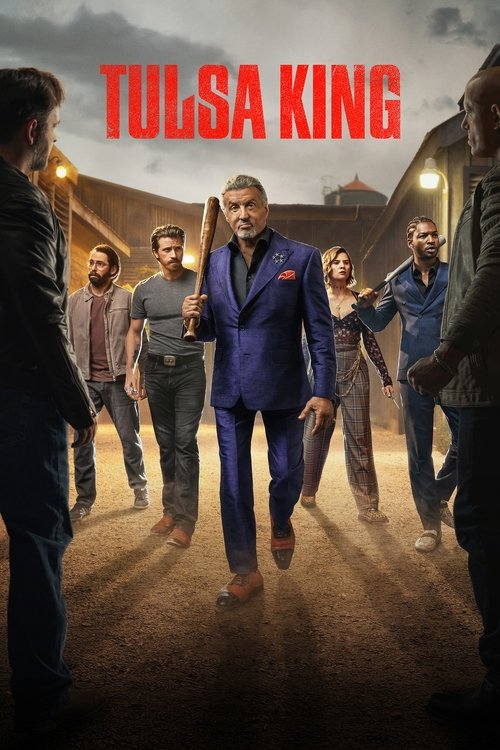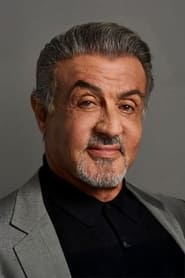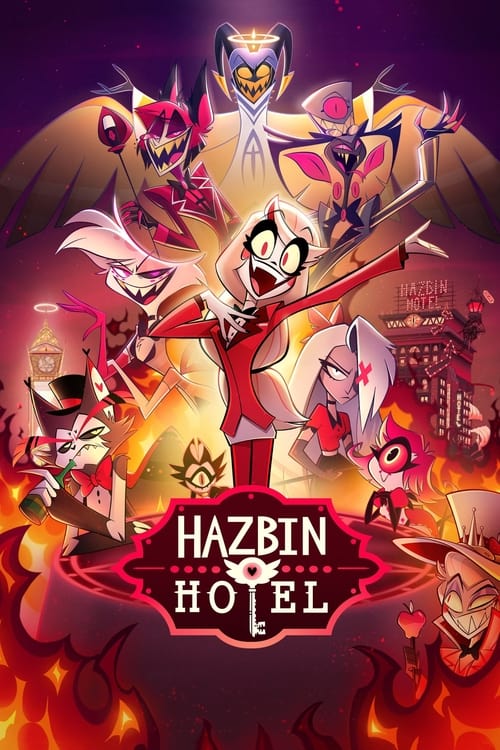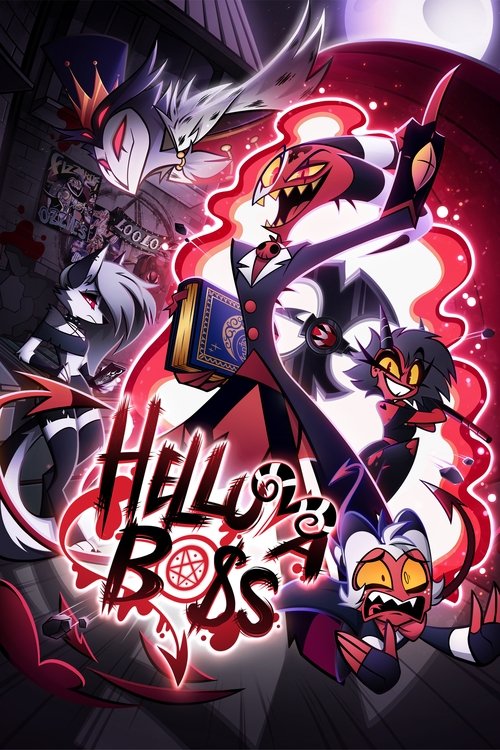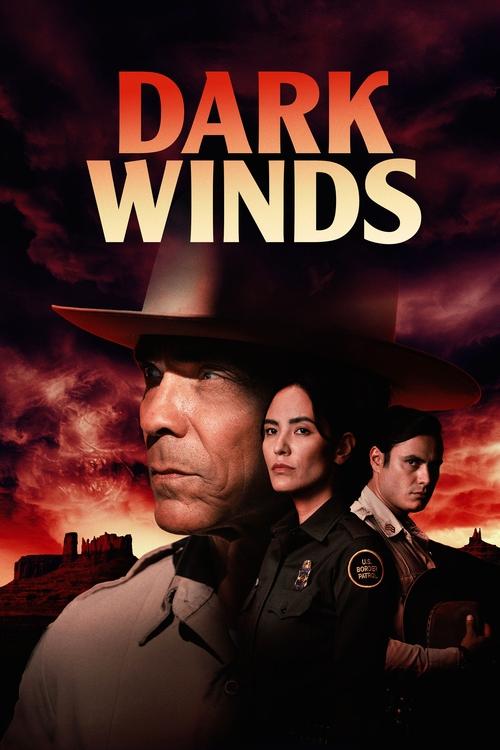
Ask Your Own Question
What is the plot?
In the opening scene of "Tulsa King," we meet Dwight "The General" Manfredi, a mobster recently released from a 25-year prison sentence. He is greeted by his former boss, Pete, who informs him that the crime family has moved on and no longer needs his services in New York. Instead, they send him to Tulsa, Oklahoma, to establish a new operation. Dwight is initially frustrated and feels abandoned, but he accepts the assignment, seeing it as an opportunity to prove himself.
Upon arriving in Tulsa, Dwight finds himself in a strange environment, far removed from the streets of New York. He checks into a hotel and begins to explore the city. He quickly realizes that he needs to establish a network and find people to work with. He visits a local bar, where he meets a group of bikers. After a tense interaction, he manages to assert his dominance, but the bikers are not easily intimidated.
Dwight then seeks out a local businessman, a former football player named Bodhi, who runs a weed dispensary. He proposes a partnership, suggesting that they could work together to expand the business. Bodhi is initially skeptical but intrigued by Dwight's confidence and connections. They strike a deal, and Dwight begins to lay the groundwork for his operation.
As Dwight settles into his new life, he encounters various challenges. He faces resistance from local criminals who are wary of his presence. In one notable scene, he confronts a rival gang leader, who tries to intimidate him. Dwight stands his ground, leading to a violent confrontation where he demonstrates his combat skills, ultimately gaining respect from the local community.
Throughout the series, Dwight's relationship with his estranged daughter, who lives in New York, is explored. He attempts to reconnect with her, but she is resentful of his past and the life he chose. This emotional struggle adds depth to Dwight's character, revealing his desire for redemption and family connection.
As Dwight's operation grows, he begins to attract attention from law enforcement. A determined detective named Clara, who is investigating organized crime in Tulsa, starts to piece together Dwight's activities. Their paths cross multiple times, leading to a tense cat-and-mouse game. Clara is both intrigued and frustrated by Dwight, as she sees through his tough exterior and recognizes his complexity.
In a pivotal moment, Dwight learns that his former boss in New York is unhappy with his progress in Tulsa. He receives a warning that he needs to prove himself quickly or face dire consequences. This pressure drives him to take more risks, including expanding his drug operation and making deals with unsavory characters.
As the series progresses, Dwight's relationships with Bodhi and the bikers deepen. They become a makeshift family for him, providing support and camaraderie. However, tensions rise when a betrayal occurs within the group, leading to a violent fallout. Dwight must navigate the aftermath, balancing loyalty and the harsh realities of his criminal life.
In the climax of the season, Dwight faces a major threat from both law enforcement and rival gangs. A large-scale confrontation ensues, culminating in a dramatic showdown that tests Dwight's leadership and survival instincts. He must make critical decisions that will determine the future of his operation and the safety of those he cares about.
The season concludes with Dwight standing at a crossroads. He has established himself in Tulsa but at a significant cost. His relationships are strained, and the threat of violence looms large. As he reflects on his journey, he grapples with the choices he has made and the person he has become, setting the stage for potential conflicts and developments in future seasons.
What is the ending?
In the ending of "Tulsa King," Dwight "The General" Manfredi confronts the challenges of his new life in Tulsa, leading to a violent showdown with his enemies. The series culminates in a tense standoff that tests loyalties and reveals the true nature of the characters involved. Dwight's journey comes full circle as he embraces his role as a leader, while the fates of his allies and adversaries are sealed in the chaos of the final confrontation.
As the final episode unfolds, the tension in Tulsa reaches a boiling point. Dwight "The General" Manfredi, having established himself in the city, faces the consequences of his past decisions. The scene opens with Dwight in his modest office, the walls adorned with reminders of his former life in New York. He sits at his desk, a contemplative look on his face, reflecting on the journey that brought him to this moment. The weight of his responsibilities presses down on him, and he knows that the peace he has fought for is fragile.
The camera shifts to his loyal associates, including Bodhi, who has become a trusted confidant. Bodhi is seen preparing for the impending conflict, his face a mask of determination mixed with anxiety. He understands the stakes; this is not just about survival but about establishing a legacy in a new territory. The bond between Dwight and Bodhi is palpable, underscoring the theme of loyalty that runs throughout the series.
As night falls, the atmosphere thickens with anticipation. Dwight gathers his crew, including the tough-as-nails Tina and the street-smart, resourceful Mitch. They strategize in a dimly lit bar, the air heavy with unspoken fears and hopes. Dwight's leadership shines through as he lays out a plan to confront their rivals, the Italian mob, who have been encroaching on their territory. His voice is steady, but there's an underlying tension in his demeanor; he knows the risks involved.
The scene transitions to the rival mob's hideout, where their leader, a menacing figure named Sal, is plotting his next move. The camera captures the cold, calculating expressions of Sal and his men, highlighting the imminent clash between the two factions. The stakes are high, and the tension is palpable as both sides prepare for an inevitable confrontation.
The showdown occurs in a deserted warehouse, the setting stark and foreboding. Dwight and his crew arrive, their faces set with determination. The atmosphere is electric, filled with the sounds of distant sirens and the rustling of the wind. As they enter, the tension escalates, and a standoff ensues. Words are exchanged, filled with bravado and threats, but it quickly devolves into violence.
Gunfire erupts, and chaos ensues. Dwight fights fiercely, showcasing his experience and resilience. The camera captures the raw intensity of the battle, with close-ups of the characters' faces reflecting their fear, anger, and resolve. Bodhi proves his worth, taking down an enemy with a swift move, while Tina fights valiantly, embodying the strength and tenacity that Dwight has instilled in her.
As the dust settles, the aftermath of the confrontation reveals the fates of the main characters. Dwight stands amidst the wreckage, bloodied but unbroken. He has emerged victorious, but the cost is evident. Bodhi, though injured, survives, and his loyalty to Dwight is solidified in this moment of crisis. Tina, too, stands by Dwight's side, her fierce spirit undiminished.
In the final moments, Dwight reflects on the battle, the weight of leadership heavy on his shoulders. He realizes that while he has secured his place in Tulsa, the fight for respect and power is ongoing. The camera pulls back, showing the city skyline, a symbol of both opportunity and danger. Dwight's journey is far from over, and as he looks out over the city, there's a sense of resolve in his eyes. He is ready to face whatever comes next, embodying the spirit of a man who has found a new home, albeit one fraught with challenges.
The series concludes with a sense of ambiguity, leaving viewers to ponder the future of Dwight and his crew. The final shot lingers on Dwight's face, a mixture of determination and contemplation, as the screen fades to black, signaling the end of this chapter in his life while hinting at the complexities that lie ahead.
Who dies?
In the TV show "Tulsa King," several characters face significant peril, leading to deaths that impact the narrative and character arcs. Here are the key deaths:
-
Vince: Vince is a member of the New York mob who is sent to Tulsa alongside Dwight "The General" Manfredi. His death occurs in the first episode, when he is ambushed and killed by a rival gang. This event sets the tone for the series, highlighting the dangers that Dwight faces as he tries to establish his presence in a new city. Vince's death serves as a catalyst for Dwight's determination to assert his authority and navigate the treacherous landscape of Tulsa's criminal underworld.
-
Bodhi: Bodhi is a local drug dealer who initially has a tense relationship with Dwight. In a later episode, Bodhi is killed in a confrontation with Dwight's crew. The circumstances of his death are tied to the escalating conflict between Dwight's operations and the existing criminal elements in Tulsa. Bodhi's death is significant as it illustrates the violent repercussions of Dwight's attempts to take control and the lengths he will go to protect his interests.
-
Marty: Marty is a character who becomes involved with Dwight's operations. His death occurs during a violent confrontation with a rival gang. The scene is intense, filled with chaos as gunfire erupts. Marty's death is a poignant moment that underscores the high stakes of the criminal world Dwight is trying to navigate. It also serves to deepen Dwight's resolve, as he grapples with the loss of someone who was trying to help him build his empire.
These deaths are not just plot points; they reflect the harsh realities of the criminal lifestyle and the emotional toll it takes on Dwight and those around him. Each loss propels Dwight further into a world of violence and moral ambiguity, shaping his character and the choices he makes as he seeks to establish his legacy in Tulsa.
Is there a post-credit scene?
In the TV show "Tulsa King," there is no post-credit scene following the episodes. The series focuses on the story of Dwight "The General" Manfredi, played by Sylvester Stallone, as he navigates the criminal underworld after being released from prison. The narrative unfolds without additional scenes after the credits, maintaining a straightforward storytelling approach throughout its episodes. Each episode concludes with a focus on the character's development and the challenges he faces in Tulsa, rather than teasing future events or plotlines through post-credit sequences.
What motivates Dwight Manfredi to return to Tulsa after being released from prison?
Dwight Manfredi, played by Sylvester Stallone, is motivated to return to Tulsa after serving 25 years in prison for a crime he committed as a mobster. Upon his release, he discovers that his former crime family has moved on without him, and he feels a strong desire to re-establish his power and influence. His internal conflict revolves around proving his worth and reclaiming his status in a world that has changed significantly during his absence.
How does Dwight's relationship with his daughter, Tina, evolve throughout the series?
Dwight's relationship with his daughter, Tina, is strained at the beginning of the series due to his long absence and the choices he made in his life. As the series progresses, Dwight attempts to reconnect with her, showcasing his vulnerability and desire for redemption. Their interactions reveal a mix of resentment and longing, as Tina grapples with her father's criminal past while Dwight seeks her forgiveness and understanding.
What challenges does Dwight face when trying to establish his criminal operations in Tulsa?
Upon arriving in Tulsa, Dwight faces numerous challenges in establishing his criminal operations. He encounters resistance from local gangs, law enforcement, and even his own family, who are skeptical of his intentions. Dwight's struggle to adapt to the new criminal landscape, coupled with his old-school mob mentality, creates tension and conflict as he tries to assert his authority and build a new empire.
How does Dwight's relationship with his new associates, such as Bodhi and the bar owner, evolve?
Dwight's relationship with his new associates, particularly Bodhi, a local pot dealer, and the bar owner, is complex and evolves over time. Initially, there is a power dynamic where Dwight tries to assert his dominance, but as they face external threats together, a bond forms. Dwight's mentorship and protective instincts come to the forefront, showcasing his ability to adapt and build alliances, even with those who are not traditional mobsters.
What role does the theme of loyalty play in Dwight's interactions with his former crime family?
Loyalty is a central theme in Dwight's interactions with his former crime family. After being sidelined during his prison sentence, he grapples with feelings of betrayal and abandonment. As he attempts to reconnect with his old associates, he is constantly testing their loyalty to him and questioning his own loyalty to a family that has moved on. This theme drives many of his decisions and conflicts, highlighting the complexities of loyalty in the criminal underworld.
Is this family friendly?
"Tulsa King," produced in 2022, is not considered family-friendly due to its mature themes and content. Here are some potentially objectionable or upsetting aspects that may affect children or sensitive viewers:
-
Violence: The show features scenes of physical confrontations, including fights and gun violence, which may be intense and graphic.
-
Strong Language: Frequent use of profanity and harsh language is present throughout the series, which may not be suitable for younger audiences.
-
Crime and Criminal Activity: The narrative revolves around organized crime, including drug dealing and other illegal activities, which may be disturbing for some viewers.
-
Adult Themes: The show explores themes of betrayal, loyalty, and moral ambiguity, often depicting characters in morally questionable situations.
-
Substance Use: There are instances of alcohol and drug use, which could be inappropriate for children.
-
Emotional Turmoil: Characters experience significant emotional struggles, including loss, loneliness, and existential crises, which may be heavy for sensitive viewers.
Overall, the series contains elements that are more suitable for adult audiences and may not be appropriate for children.

